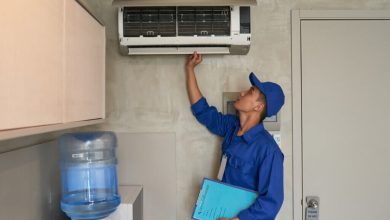Dealing with Repeated IVF Failures: Hope and Resilience

The journey of in vitro fertilization (IVF) is often an emotional rollercoaster, marked by hope and sometimes, heartbreak. For individuals and couples experiencing repeated IVF failures, the emotional toll can be immense. In this article, we explore the emotional aspects, coping strategies, and pathways to finding hope and resilience in the face of repeated IVF failures.
The Emotional Impact of Repeated IVF Failures
Dealing with the disappointment of failed IVF cycles can be devastating. Each unsuccessful attempt at conception brings a wave of emotions, from sadness and frustration to profound grief. The accumulation of these disappointments can significantly impact one’s mental health, leading to anxiety, stress, and a sense of hopelessness.
Seeking Emotional Support and Guidance
During such challenging times, seeking emotional support becomes crucial. Counseling, support groups, or therapy sessions can provide a safe space to express feelings, share experiences, and gain coping strategies. Emotional support is essential, not just for the individuals undergoing IVF but also for their partners, as they too grapple with the emotional turmoil.
Comprehending and Addressing Expectations
Managing expectations during an IVF journey is vital. While hope is essential, understanding that success might take time, and sometimes multiple attempts, is crucial. It’s important to strike a balance between remaining hopeful and acknowledging the potential for setbacks.
Investigating Alternative Approaches to Parenthood
Exploring alternative routes to parenthood can be a source of hope for those who have had multiple IVF failures. Adoption, donor conception, or surrogacy are alternative routes that have brought joy and fulfillment to many individuals or couples who have faced challenges with IVF.
Medical Evaluation and Personalized Approaches
Recurrent IVF failures may prompt a need for a comprehensive medical evaluation. Understanding the underlying causes of the failures can lead to tailored approaches and adjustments in treatment plans. Sometimes, subtle changes in protocols or techniques based on personalized medical assessments can yield better outcomes.
Coping Strategies and Self-Care
Implementing coping strategies and self-care practices can aid in managing the emotional strain. Exercise, hobbies, mindfulness, or seeking solace in nature, for example, can provide much-needed respite during this trying time.
Sustaining Transparent Dialogue
Open and honest communication between partners is fundamental. Sharing feelings, concerns, and fears can foster mutual support and understanding, strengthening the bond between partners as they navigate the difficulties of IVF.
Exploring Emotional Healing and Resilience
Building emotional resilience becomes a cornerstone in facing repeated IVF failures. Embracing the journey with an understanding that setbacks are a part of the process and focusing on emotional healing, can help individuals and couples in moving forward with renewed strength and determination.
Fostering Hope and Possibilities
Finding hope in the face of adversity is an extremely effective tool. Despite repeated IVF failures, maintaining a positive outlook and believing in the possibility of success in the future can provide the much-needed optimism to continue the journey.
Community and Peer Support
Connecting with others who have gone through similar experiences can be immensely comforting. Peer support from those who have traveled a similar path can provide encouragement, insights, and a sense of belonging, reassuring individuals and couples that they are not alone in their journey.
Scientific and Technological Progress
Advancements in reproductive medicine continue to evolve, offering new possibilities and renewed hope for those facing repeated IVF failures/فشل التلقيح الصناعي المتكرر:
PGT
For individuals experiencing recurrent IVF failures, PGT can be a valuable tool. This testing allows for the examination of embryos for chromosomal abnormalities before implantation, potentially improving the chances of successful pregnancies.
Time-Lapse Imaging and EmbryoScope Advancements
Time-lapse imaging and the use of EmbryoScope technology offer continuous monitoring of embryos, allowing for better embryo selection based on developmental milestones. This increases the likelihood of selecting the most viable embryos for transfer, potentially increasing success rates.
Personalized Treatment Plans
Advances in personalized medicine have led to the development of tailored treatment plans. With more precise assessments and customized protocols based on individual responses, there is potential for improved outcomes in subsequent IVF attempts.
Therapeutic Mitochondrial Replacement
Emerging techniques such as mitochondrial replacement therapy offer innovative solutions for those struggling with recurrent IVF failures due to mitochondrial issues, potentially improving embryo quality and overall success rates.
Research into Embryo Implantation
Ongoing research into factors affecting embryo implantation is paving the way for new interventions that could enhance the receptivity of the uterus and improve the chances of successful implantation.
Cutting-Edge Techniques and Alternatives
Innovative techniques like in vitro maturation (IVM) of eggs or the use of artificial intelligence (AI) in embryo selection are being explored, presenting promising alternatives for individuals facing repeated IVF failures.
Investigating Alternative Paths to Parenthood
In the face of repeated IVF failures, the pursuit of parenthood can take diverse routes, each offering unique possibilities and renewed hope:
Adoption
Adoption provides an opportunity to build a family by welcoming a child in need into one’s life. It offers a path to parenthood that transcends biological connections and can be a deeply rewarding experience.
Donor Conception
Donor conception, which includes egg or sperm donation, opens up new possibilities for individuals and couples. This method allows for the creation of a family with the help of donors and fertility specialists.
Surrogacy
Surrogacy provides a way for individuals or couples to experience parenthood when carrying a pregnancy is not an option. It involves the assistance of a surrogate who carries the pregnancy to term.
Fertility Preservation
Exploring fertility preservation options, such as egg or sperm freezing, allows individuals to preserve their reproductive potential for future use, giving them time to address the underlying causes of IVF failures or wait for more advanced treatments.
Support and Community
Engaging with support groups and communities dedicated to alternative paths to parenthood can provide valuable insights, emotional support, and guidance for those exploring these options. Sharing experiences with others who have taken similar journeys can be reassuring and enlightening.
Comprehensive Consultation
Seeking comprehensive consultation with fertility specialists, adoption agencies, or surrogacy programs is essential to make informed decisions about the alternative paths to parenthood. These professionals can provide guidance, answer questions, and support individuals in their quest to build a family.
Conclusion: Nurturing Hope and Resilience
Repeated IVF failures can be emotionally draining, but they don’t mark the end of the road. Nurturing hope, resilience, and seeking support are crucial components in managing the emotional impact of IVF failures. Each individual’s journey is unique, and while the road may be challenging, finding hope and strength amid disappointment can be the driving force toward eventual success and fulfillment in the pursuit of parenthood.



